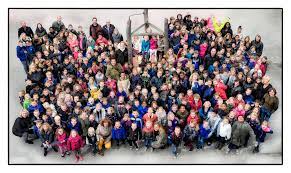
Why staff are scarce right now. And so what?
Wat moet de lezer met al dat nieuws over de krapte op de arbeidsmarkt (NRC 18/6/2022 Waarom personeel juist nu schaars is)? En dat die krapte alleen nog krapper wordt, ook na een recessie? Alsof de ballon het punt nadert dat deze met veel ellende klapt, als niet wordt ingegrepen. De ballon heeft daarbij overigens nog ruimte opgeblazen te worden door de arbeid evenwichtiger te verdelen door een hoger salaris en leuke werkomgeving aan te bieden. Maar dan houdt het wel op, omdat de vijver waaruit gevist wordt niet groter wordt. Economen weten het al heel lang, dat een van de productiemiddelen voor economische groei de arbeid is. Is er een arbeidstekort ten opzichte van de vraag, dan zal de groei stagneren of zelfs dalen (ceteris paribus). Is dit alles nu een aansporing meer kinderen te krijgen of om juist genoegen te nemen met minder groei van producten en diensten? Het eerste staat haaks op de inspanningen om de ecologische voetafdruk van de mens te verminderen. Het laatste staat in schril contrast met wat de consument aan exploderende bestedingsvraag heeft. Media – ook het NRC – zouden dit dilemma wat duidelijker in hun berichtgeving over het voetlicht moeten brengen en niet alleen de toenemende krapte sec beschrijven. En daarmee de lezer schouderophalend achter laten.
What should the reader do with all that news about the shortage on the labor market (NRC 18/6/2022 Why staff are scarce now)? And that this tightness will only get tighter, even after a recession? As if the balloon is approaching the point where it will burst with great misery if no action is taken. Moreover, the balloon still has room to be inflated by distributing the work more evenly by offering a higher salary and a pleasant working environment. But then it stops, because the pond from which the fish is fished does not get any bigger. Economists have known for a long time that one of the means of production for economic growth is labour. If there is a labor shortage relative to demand, growth will stagnate or even decline (ceteris paribus). Is all this an incentive to have more children or to settle for less growth in products and services? The first is at odds with efforts to reduce humans’ ecological footprint. The latter is in stark contrast to consumer demand for exploding spending. The media – including the NRC – should highlight this dilemma more clearly in their reporting and not just describe the increasing shortage of sec. And leaving the reader with a shrug.
Ricky Turpijn



